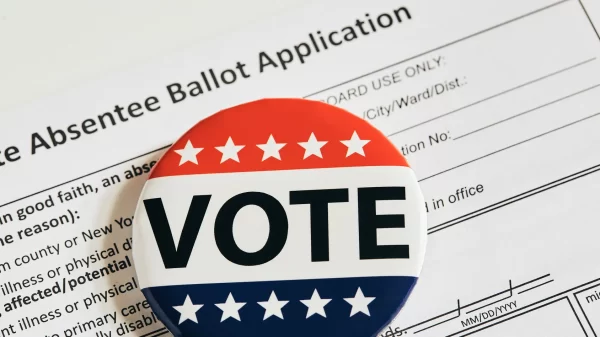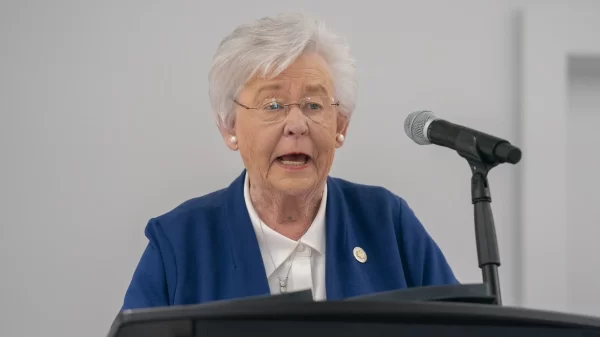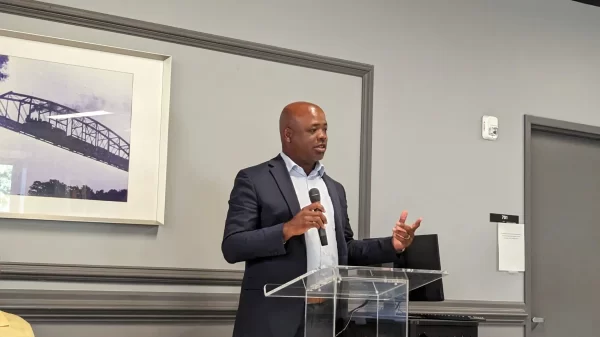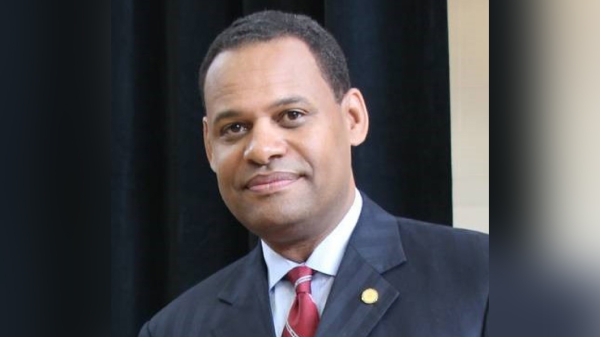|
Getting your Trinity Audio player ready...
|
On Tuesday, U.S. District Judge Corey Maze denied the request of six Alabama prisoners for a preliminary injunction. The six plaintiffs filed a lawsuit in December against the Alabama Department of Corrections, Gov. Kay Ivey, Attorney General Steve Marshall, and others over what they called “a modern-day form of slavery” in Alabama’s prisons.
The plaintiffs’ denied request centered around 2019 changes to the Alabama parole system that they claim constitute ex post facto punishment and violate the Equal Protection Clause of the 14th Amendment.
Beginning in 2015, under the Justice Reinvestment Act, the Alabama Bureau of Pardons and Paroles heavily utilized the Ohio Risk Assessment System, an objective, data-based system for assessing parole applications.
Three years later, in 2018, the parole grant rates by race were almost equal: 50.7 percent of Black candidates and 54.4 percent of white candidates were approved for parole.
Then, in June 2019, Gov. Ivey signed into law HB380, a bill restructuring the ABPP by creating a new position, the Director of Pardons and Paroles, appointed by the governor. The new law also emphasized public safety as a factor in issuing pardons and transferred the ability to nominate candidates for the ABPP board to a panel of the lieutenant governor, the Alabama speaker of the House, and the Alabama president pro tempore.
In the three years following these changes, “white parole candidates were 2.06 times as likely to be granted parole as Black parole candidates” according to a data analyst the plaintiffs hired. After the changes, Black inmates denied parole were also more likely to be assigned the maximum length of time before their next hearing than white inmates were.
On top of this dramatic increase in racial disparity, parole requests in general were also denied far more frequently after the 2019 changes. In 2018, thanks to the use of the Ohio Risk Assessment System, 54 percent of parole applications were approved. By 2020, only 20 percent were approved. By 2023, the parole approval rate had fallen to just 8 percent.
These approval rates were far, far below the recommended grant rates suggested by the official parole guidelines the ABPP adopted in July 2020. In the 2023 fiscal year, the recommended grant rate was 81 percent: the actual grant rate was less than one-eighth of that.
In addition to data on the effects of the 2019 reforms, the plaintiffs also referenced a declaration submitted to the court by former ABPP parole board chair Lyn Head. The former chair wrote under penalty of perjury about how Gov. Ivey and Attorney General Marshall pressured the ABPP to deny far more parole requests, and she attributed a pattern of racist behavior to one of Ivey’s ABPP appointees.
After a man out on parole, Jimmy Spencer, was charged with murdering three individuals in early 2018, Gov. Ivey and Attorney General Marshall called the members of the ABPP board into a meeting that October.
According to Head, Ivey read from a script, repeatedly asking “Why would you release anyone convicted of a violent crime?” Then, Head says, Marshall and Ivey “conveyed to us that we should be denying parole applications much more often than we were doing” and Ivey “specifically told us that parole should be denied to applicants who had been convicted of a violent crime.”
After that meeting, Head says that Ivey’s legal staff told her that “if I removed Mr. Cook [the ABPP executive director], then Governor Ivey and Attorney General Marshall would ease up on the Parole Board.”
Head also accused Ivey’s first appointment to the Director of Pardons and Paroles position created by HB380, Charles Graddick, of repeatedly engaging in racist behavior. When he was first appointed by Gov. Ivey, he reportedly told the “only Black people in director level positions in ABPP’s operations leadership at the time” to either resign or be terminated.
In what Head describes as “an act of humiliation,” all three directors “were required to turn over agency property and were demonstratively escorted from the building.” Head also said Graddick later instituted a “personnel manual for the agency that prohibited traditional Black hairstyles.”
“I could not in good conscience work with people who engaged in such openly racist practices,” Head concluded. “On September 15, 2019, I called Governor Ivey’s chief of staff Joe Bonner and told him I was resigning effective October 1, 2019.”
Head has previously told APR she resigned because of “blatant, blatant, blatant racial discrimination,” but the ban on traditional Black hairstyles and the “act of humiliation” she described in her filing were not reported on.
Gov. Ivey’s office did not respond to APR’s requests for comment. Graddick resigned from his post at the ABPP in November 2020 and was replaced by current ABPP director and longtime state senator, Cam Ward.
Despite the apparent disproportionate effects of these changes on Black inmates, Judge Maze claimed that the decline in the parole grant rate could not be directly attributed to the 2019 amendments, as the largest decline in grant rate was between fiscal year 2018 and fiscal year 2019. This, Maze explained, means the “Plaintiffs are unlikely to prove at trial” that the 2019 changes constituted ex post facto punishment.
Responding to the plaintiffs’ claim under the Equal Protection Clause, Maze wrote that the four categories used in their data analysis “are too broad for the court to say there are no material differences between the parole candidates being compared.”
While Black inmates in all four categories (convicted of violent offenses, convicted of non-violent offenses, housed in work-release facilities, and housed in work-center facilities) were significantly less likely to be granted parole than white inmates, Maze states these categories do not ensure inmates being compared are “similarly situated in all material respects.” He also found the data used in the regression analysis which concluded white inmates were 2.06 times as likely to receive parole to be insufficient.
Maze finally wrote that Head’s testimony and the history of the 2019 amendments “doesn’t establish … a racially discriminatory intent or purpose.” He continued: “It isn’t enough for Plaintiffs to assert that the Board is applying more stringent parole criteria than before and that this practice has a discriminatory effect.”
While in a Wednesday press release, the plaintiffs remained publicly optimistic about their chances, the judge concluded that the “Plaintiffs haven’t established a substantial likelihood of success on the merits of either their Ex Post Facto or Equal Protection Clause claims.”






















































